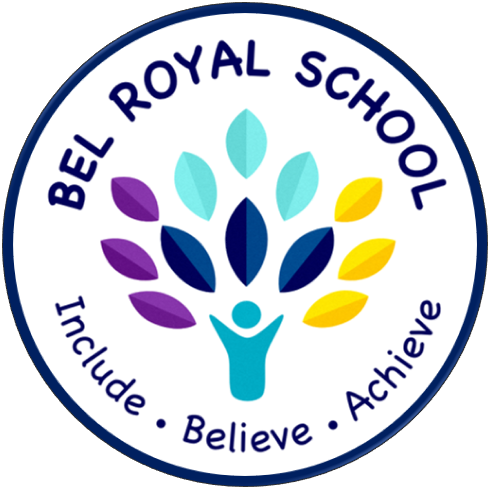
Bel Royal Primary School
Reading
Reading is to the mind what exercise is to the body
Joseph Addison
In addition to the whole class (Text Driver) lessons, the explicit teaching of reading is prioritised to allow pupils to develop the skills they need to access the full curriculum offered, so that, ultimately, from learning to read, they can read to learn in and out of school.
Our rigorous and sequential approach to reading develops the pupil’s fluency, comprehension and enjoyment of reading. At Bel Royal, the Read, Write, Inc. phonics program begins formally in Reception - click here for more information.
Guided Reading
In Reception and Key Stage 1, group guided reading sessions tailored to the pupil’s reading ability are delivered 2 – 3 times a week. These sessions explicitly develop the children’s reading fluency, automaticity when applying their phonics, ability to recall sight words, use of a range of effective reading strategies, and build their reading comprehension. The texts used for these sessions are selected based on the children’s current benchmark levels, interests and needs. Pupils are grouped using a fluid approach based on close monitoring. Guided reading records are used to record and track progress by all adults.
In Key Stage 2, small group reading continues for pupils who require closer support in developing their early reading skills.
Sight Words and Common Exception Words
Age- and stage-specific sight words and common exception words are taught from Reception to Year 6. Quick fire strategies and games are used throughout the week to secure children’s ability to read these words on sight. In Reception and KS1 the 100 High Frequency Words are initially prioritised to ensure pupils can recall these words rapidly and effortlessly.
Whole Class Reading
In Key Stage 2, Whole Class Reading sessions are taught at least three times per week in 30-minute sessions. These sessions follow a structured, research-based approach where reading skills are explicitly taught. This includes deciphering vocabulary, inferring, predicting, explaining, retrieving and summarising through the VIPERS (Vocabulary, Inference, Prediction, Explaining, Retrieval, Sequence/Summarise) structure.
Reading fluency is prioritised, practised, and developed throughout a child’s reading journey to ensure that the child builds the ability to read accurately and fluently using an appropriate pace and expression. This is taught through various strategies, including choral reading, echo reading and reader’s theatre. Whole Class Reading texts enrich curriculum learning with intentional selections being made based on the children’s current topics and interests. Texts also enhance children’s knowledge and understanding of the world, promoting thoughtful discussion around current events and diversity.
Reading across the curriculum
Lessons across the curriculum are ‘text-rich,’ with quality texts used to engage pupils, stimulate discussion, celebrate diversity, and provide ample opportunities for children to apply and develop their reading skills online and offline for varied purposes.
Class Story Times
Children enjoy adults reading to them at least once a day, and these sessions promote reading for pleasure.
Reading at Home
Children and parents are encouraged to extend their journey as a reader at home. Teachers provide parents with helpful guidance on reading with their child through information sent home, parental workshops and children having access to a range of reading materials to borrow. The texts sent home range from levelled scheme books including Engage Literacy and Rigby Star resources, their weekly RWI book and non-levelled high-quality texts chosen from libraries. (See Reading at Home guidance). Seesaw will facilitate strong home-school links and inspire reading at home and reading out-loud activities.
Libraries and Book Corners
Our welcoming, organised, and inspiring school library and class book corners celebrate reading, providing space for children to read for pleasure and research. These reading spaces provide both non-fiction and fiction spaces for children to read for pleasure, learn, and socialise using books. Our book selection represents the dominant languages of our school and promotes diversity.
Assessment
Thorough and systematic assessments are used formatively to track attainment and inform about next steps.
In reading, these include:
-
Regular ongoing teacher assessments from guided and whole class reading
-
Half-termly RWI assessments
-
Ongoing (at least termly) benchmarking assessments of all children in Reception, KS1 and children/ appropriate classes in KS2.
-
YARK assessments if children require extra intervention
-
Termly PIRA tests of all children KS1 and KS2
-
Termly GAPS tests of all children KS1 and KS2
-
Sight word / common exception word reading assessments
-
Sight word / common exception word spelling assessments
-
Reading Recovery assessments for pupils receiving intervention
Intervention
Using a range of assessment strategies, provision is made for children who require extra support with early reading through adaptive teaching, intervention programmes and targeted support. Some interventions currently provided at Bel Royal are Reading Recovery (Year 2), Boosting Reading @ Primary (BRP), Pre-teaching, Precision teaching, Every Child Our Future reading volunteer allocation, Shine Intervention, Nessy and the Herts for Learning Fluency Project.